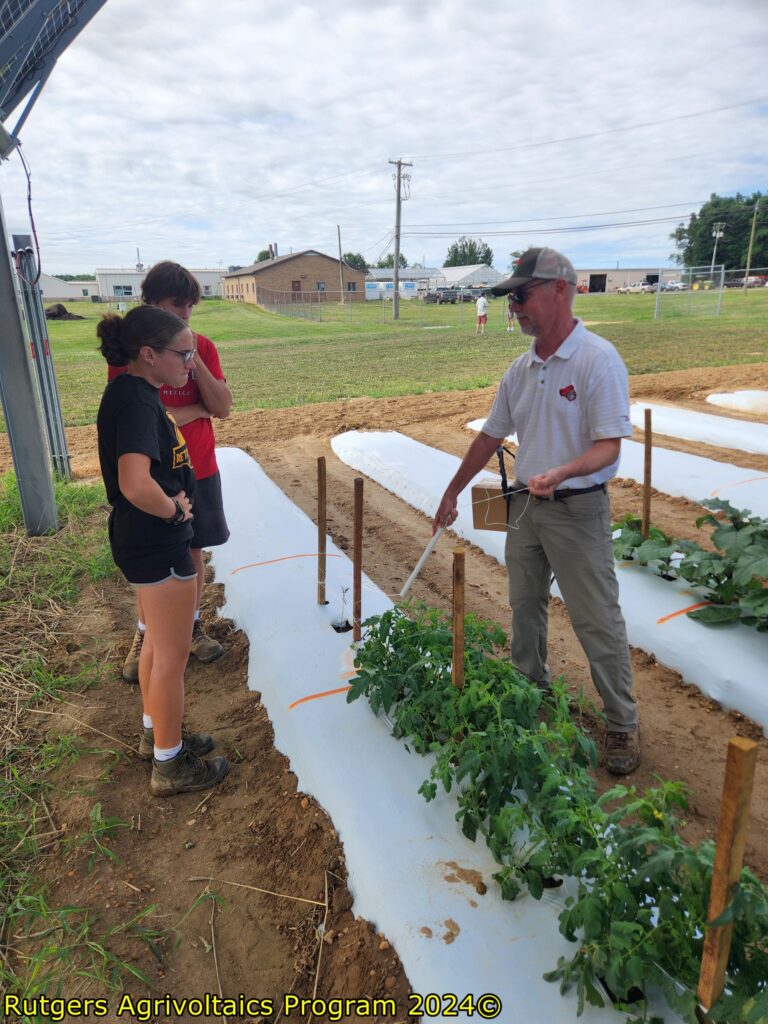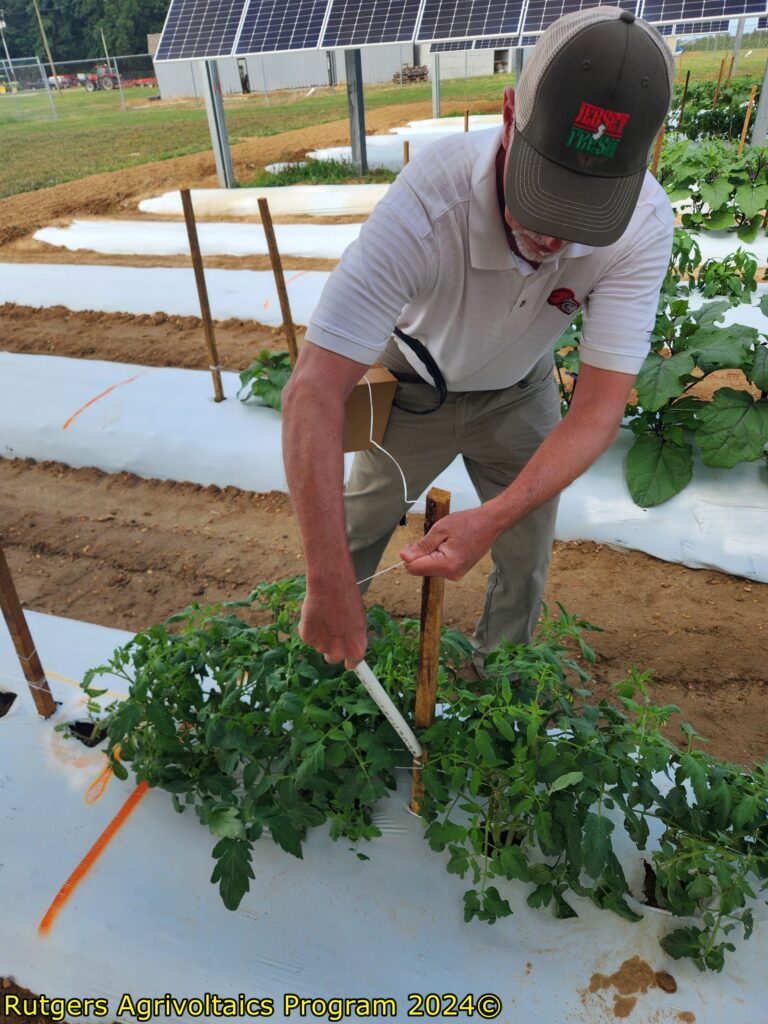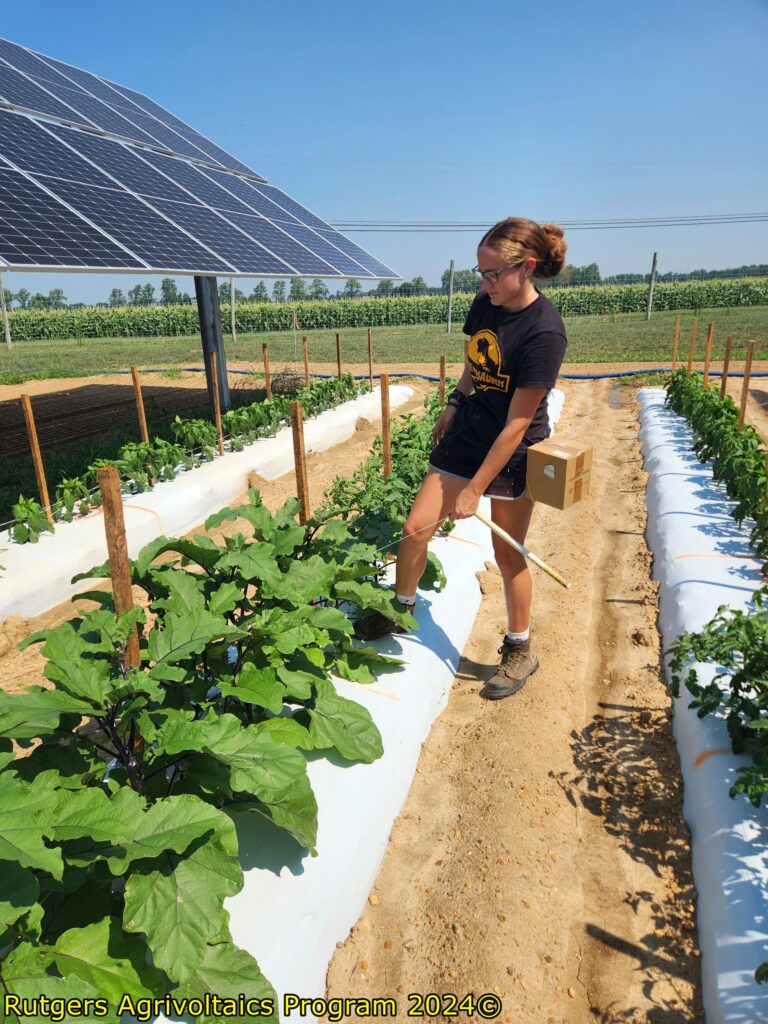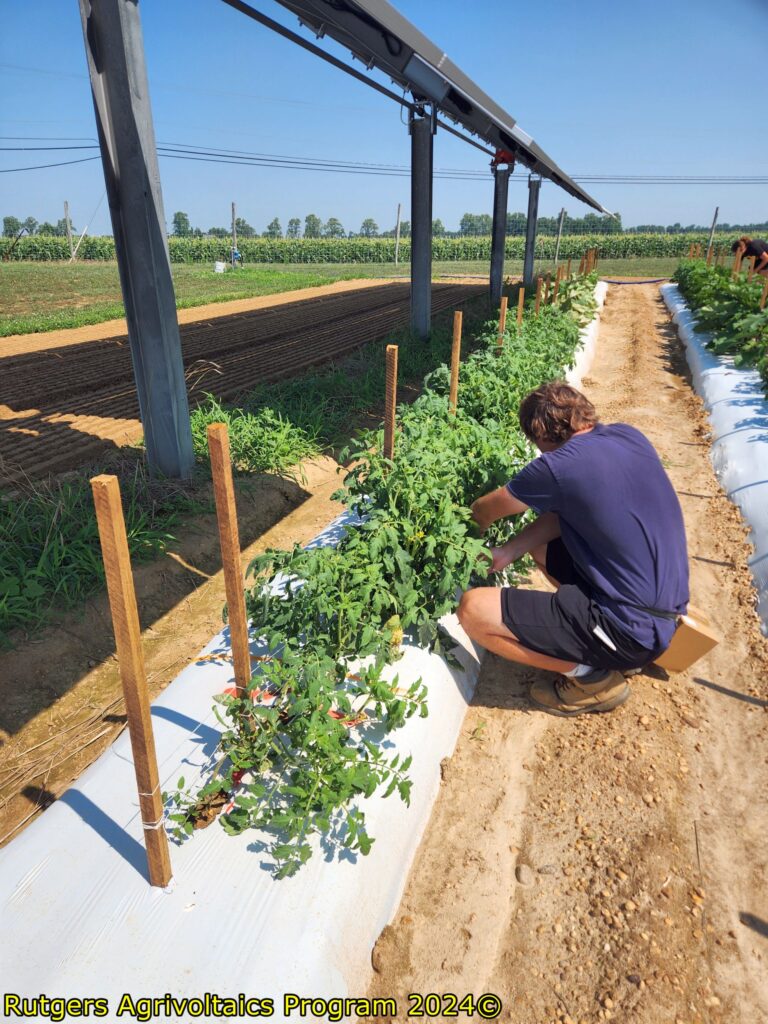Main Content
The specialty crops are quickly establishing themselves at RAREC this summer. The fresh-market tomatoes, eggplant, and bell peppers are ready for their second tie of the season. Tying specialty crops has numerous benefits to each crop. First, it helps keep developing fruit from touching the surface of the plastic mulch and soil surface. Fruit with direct contact with the soil surface are more prone to soil-borne pathogens which can cause them the rot. Secondly, the strings also help to support plant growth and developing fruit by providing a bracing support system for the plants. Third, tying the plants up also helps protect the fruit from developing sunscald by keeping the foliage in place within the canopy. Finally, it helps with making the harvesting of the fruit much easier.
Figure 1. Peter Nitzsche, Morris County Agricultural Agent and member of the Rutgers RAPS Team, demonstrating how to tie fresh-market tomatoes to undergraduate students working at the Rutgers Agricultural Research and Extension Center (RAREC) near Bridgeton, New Jersey located in southern New Jersey.
Figure 2. Undergraduate students tying fresh-market tomatoes at the Rutgers Agricultural Research and Extension Center near Bridgeton, New Jersey.
Articles and images can be used by Permission from the Rutgers RAPS Team only – For Permission contact RAPS at shawn.sorrels@rutgers.edu.
Discover more from Rutgers Agrivoltaics Program
Subscribe to get the latest posts sent to your email.



